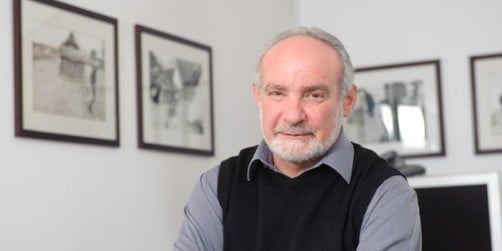A significant health initiative has emerged as South Africa grapples with a projected surge in dementia cases. By 2050, it is estimated that more than one million individuals in South Africa will be diagnosed with dementia, a figure comparable to the population of Nelson Mandela Bay in the Eastern Cape. In response to this urgent health crisis, Professor Stephen Tollman, Director of the SAMRC/Wits Rural Health Transitions Unit, has been appointed to the Africa Task Force on Brain Health by the Davos Alzheimer’s Collaborative.
This task force aims to address the escalating neurodegenerative challenges facing the continent as the population ages rapidly. The issue is compounded by existing pressures on healthcare systems already struggling to meet current demands. The collaborative recently published findings in the respected journal Nature Medicine, linking brain health to economic resilience and outlining an ambitious five-year framework known as the 6×5 plan.
Priority Actions for Brain Health in Africa
Professor Tollman emphasizes the importance of integrating brain health into various sectors of society. “Brain health runs through every stage of life and every sector of society,” he stated. “If we integrate it into what Africa is already doing well, we can protect our ageing citizens and sustain our economies.” The 6×5 plan outlines six immediate priorities aimed at enhancing Africa’s preparedness for the increasing prevalence of dementia.
The first priority focuses on expanding advocacy and education around brain health, aiming to combat stigma associated with cognitive decline. The second priority identifies brain health as a vital driver of socioeconomic transformation, acknowledging that cognitive resilience is crucial for productivity and innovation. The third priority involves leveraging existing resources, such as infectious disease infrastructure and community health workers, to improve dementia detection and care.
Additionally, the plan emphasizes the need to enhance data sharing across countries to ensure accurate policy decisions are based on reliable evidence. The transformative potential of digital health tools, artificial intelligence, and culturally adapted screening methods is highlighted as a means to reach millions at a lower cost. Finally, the sixth priority calls for sustainable funding to integrate brain health into universal health coverage and national development goals.
Research Insights and Future Directions
The SAMRC/Wits-Agincourt Research Unit, located near the Kruger National Park, has been conducting health and socio-demographic surveillance for over three decades. Through the Health and Ageing in Africa: Longitudinal Studies in South Africa (HAALSI) programme, researchers are documenting the lives of individuals aged 40 and older in resource-limited settings. This research has led to the validation of cognitive assessment tests tailored to the context of the population, aiming to identify risk factors that influence cognitive health.
The findings from this unit indicate that brain health is shaped throughout a person’s life. Factors such as maternal and child health, education, mental well-being, and risk reduction in midlife play critical roles in maintaining cognitive function. Rising incidences of hypertension, diabetes, and other chronic diseases in fast-transitioning areas like Agincourt-Bushbuckridge further complicate the landscape, as these conditions are both risk factors for and co-occurring with dementia.
With the 6×5 plan providing a practical roadmap for the next five years, the Davos Alzheimer’s Collaborative asserts that Africa possesses the necessary evidence, infrastructure, and partnerships to take action. Through coordinated efforts, the continent can shift the narrative around aging, transforming it from a source of vulnerability into one of resilience, ultimately leading the world in innovative, community-driven approaches to brain health.
